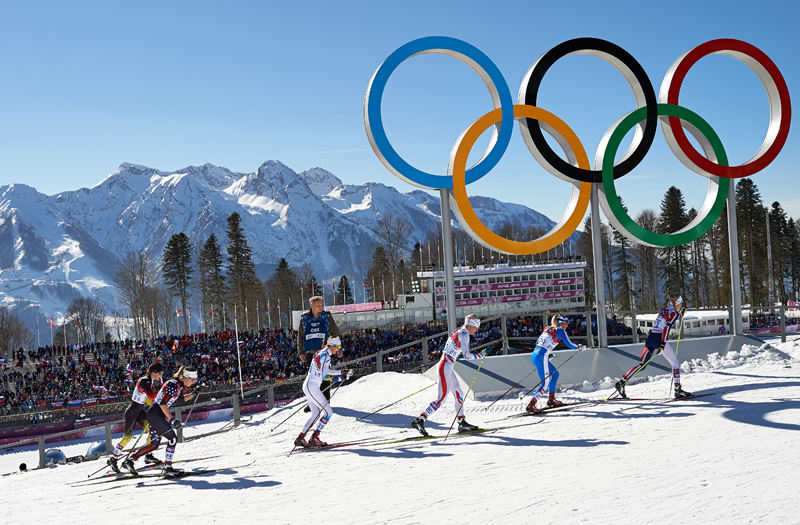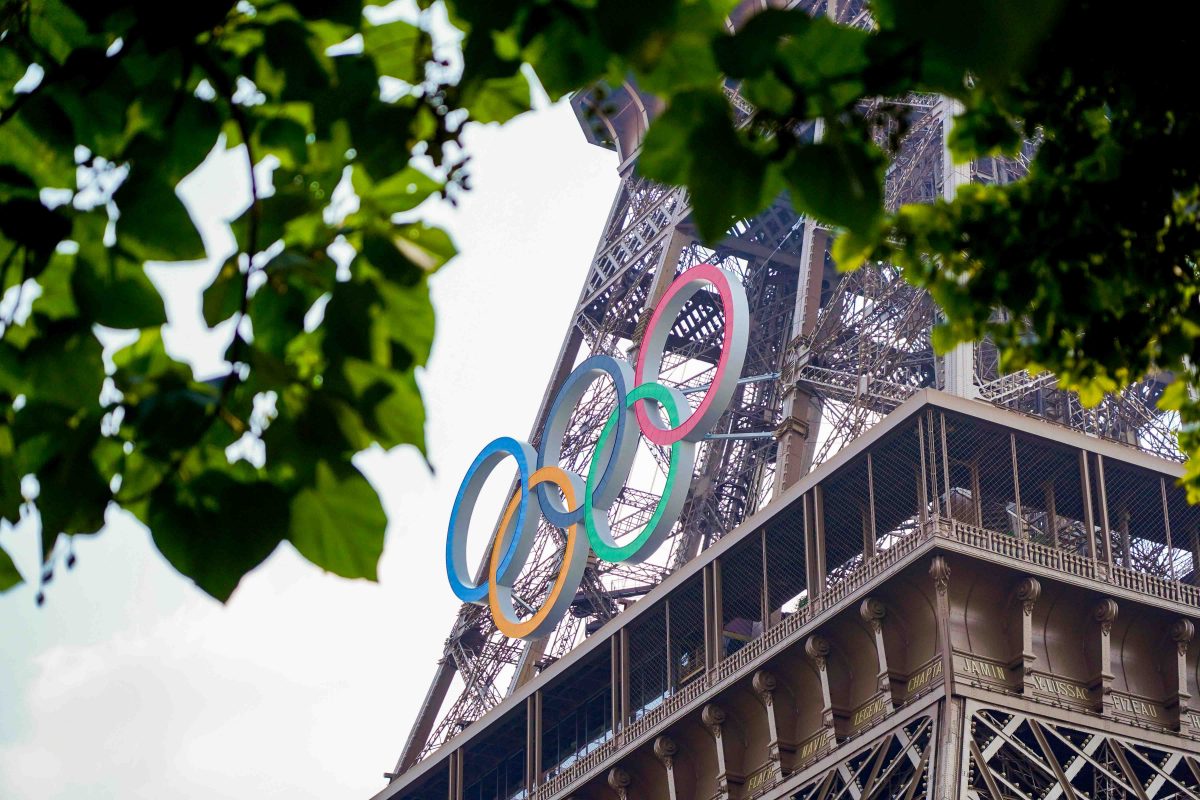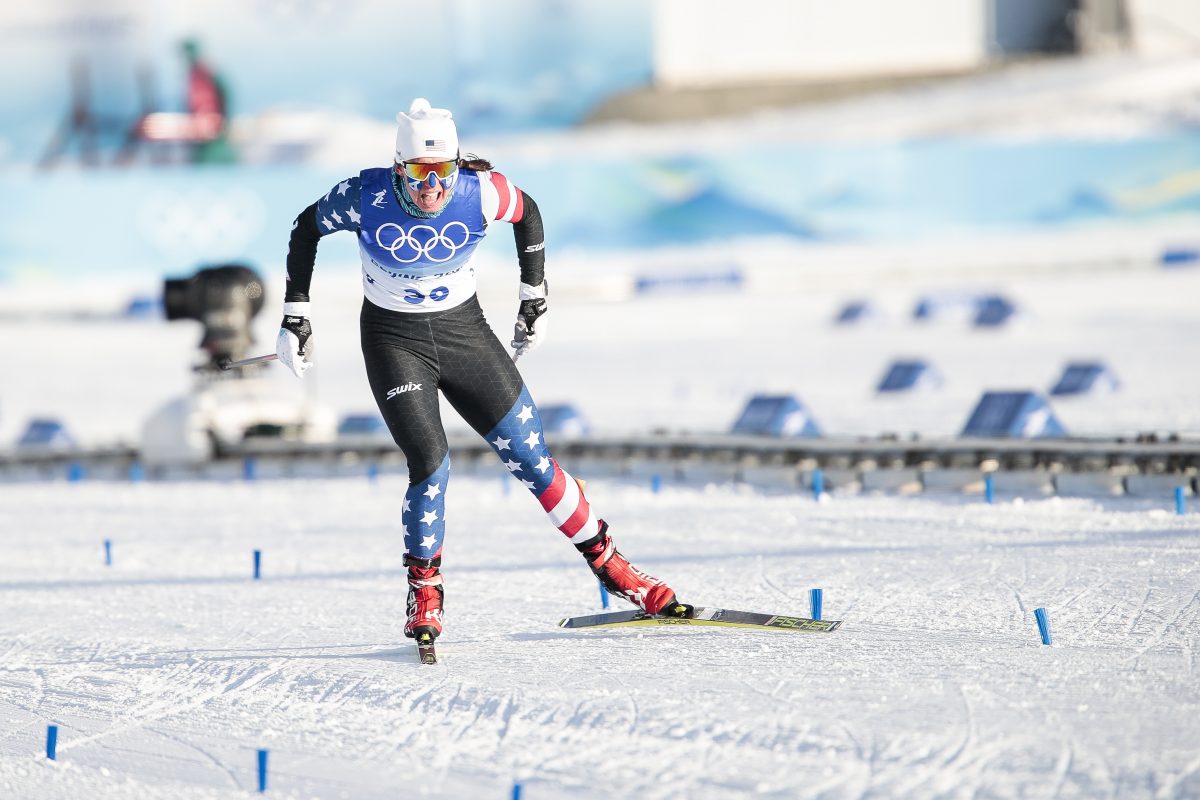
FasterSkier’s coverage is made possible through the generous support of Rudy Project.
SOCHI, Russia — After all the buildup and accompanying action of Saturday’s cross-country and biathlon competitions, the first of the 2014 Winter Olympics, there was plenty to talk about on Saturday. Here are some of the soundbites that didn’t make the race reports.
On Norwegian biathlon great Ole Einar Bjørndalen, who won his seventh gold and 12th Olympic medal in Saturday’s sprint:
“You never know with that guy! He’s an extreme athlete. After some bad years, he’s definitely back this season. He did a perfect pre-camp before the Olympics, and now he’s just making an incredible race. I’m so happy for him and so impressed.” — Tarjei Bø, Norwegian biathlete, 39th in the sprint
On the Norwegian team effort on Saturday, with two men in the top 10 (Bjørndalen, first, and Emil Hegle Svendsen, ninth) and the other two placing 39th (Tarjei Bø) and 55th (Johannes Thingnes Bø):
“It’s bad, but I guess the Olympics is about winning. One gold medal is better than four in the top ten. We took the right medal and it’s good for the team. We’re very happy, and especially that Ole can finish his fantastic career with a gold medal.” — Tarjei Bø
On the sudden death of Astrid Uhrenholdt Jacobsen’s brother, Sten Anders:
“We had a very hard afternoon and tough night yesterday. We tried to switch to competition mode yesterday night, but it was not so easy.” — Egil Kristiansen, Norwegian women’s coach
“We feel sorry for the Norwegian team, and we have talked with some people and we know that they have had a hard yesterday and even hard day today. So we feel sorry for them and hope they manage to recover from that. Because of that I think the Norge girls did a very, very strong race today to be able to focus on the race. When Charlotte [Kalla] got to know this about half past 12, one half hour before the start, I saw that in her face she was struggling a bit, with feelings. I don’t know if she know the guy, but I think she had met him, at least. It’s a small family, you know.” — Mattias Persson, Swedish women’s coach
On women’s skiathlon silver medalist, Sweden’s Charlotte Kalla:
“I saw immediately from the beginning in the classic that she was strong today. And when they went out for the free … there was a little [lead] group.” — Persson
On Justyna Kowalczk’s shape:
“I don’t know. It was not so good in Toblach and it was not so good here, so maybe it’s not so good, but she has also … her foot, I heard.”— Kristiansen
On Kowalczyk falling in the skiathlon transition:
“Then we had the three Norwegian girls, and which of them is [Kalla] gonna beat? Because some of them will be on the podium. And which place? It was an interesting race for me and for all the waxers and the team leaders.” — Persson
On the Olympic atmosphere:
“There’s quite a good number of people out on course. A lot more than I was expecting. I thought we’d be kind of alone except when we were in the stadium, but there were lots of people on the climbs. Which was pretty good – that hill hurt.” — Nathan Smith, Canadian biathlete, 13th in Saturday’s sprint
“When the Russians around shooting, then it’s pretty loud. It has a big World Cup feel I would say.” — Tim Burke, U.S. biathlete, 19th
“As a racing experience it was great. There were definitely places without fans. In Vancouver it was really eerie because there were people in the stadium and then once you got out, you felt like you could be racing the 1952 Holmenkollen or something. It was so quiet out there it was eerie. There was always a voice out here on the course today. It’s not like Oslo or anything, but it’s great. The views are spectacular. This is one of the most gorgeous places that we come, so I hope that it continues to be a World Cup venue after the Olympics.” — Holly Brooks, U.S. nordic skier, 47th in Saturday’s skiathlon
“The fans were amazing. I couldn’t even hear Matt [Whitcomb] yelling something at me. It reminded me of World Championships from Oslo a couple of years ago. People had whiteboards out to tell their athletes what they wanted. The fans and everyone in Russia have been really great, so it’s just really fun to get the Olympics started again.” — Liz Stephen, U.S. nordic skier, 12th in skiathlon
On the Olympic course:
“These are the steepest longest hills in the entire world. Aside from the Alpe Cermis, which is skiing up an alpine area [in Val di Fiemme, Italy]. I’m a little bit more of a V2, flat skier. So it’s brutal for me.” — Brooks
“This is six races on the toughest course in the world.” — Lowell Bailey, U.S. biathlete, 35th
“It’s a tough course … You attack the first climb and it feels okay, and then you hit that second really long climb, and it just kind of slowly eats you up. It’s an unforgiving course, and then when you have a long range entry, you just can’t miss. It’s a challenging venue, for sure.” — Brendan Green, Canadian biathlete, 23rd
“It’s pretty crazy. [The skiathlon skate course is] literally is a massive downhill, you get so much speed. It’s good because it’s a great rest, but literally once you get down you just climb all the way back up. It’s a burner. Head down.” — Amanda Ammar, Canadian nordic skier, 55th in skiathlon
On the conditions:
“It’s great to be here on these tracks. They are in perfect condition. The sun has been amazing the last few days.” — Stephen
“It’s really warm out but the snow is staying cold, which is perfect for skiing.” — Sadie Bjornsen, U.S. nordic skier, 31st in skiathlon
“The trick today was to find that balance and get guaranteed kick on the two last climbs of the classic course. The balance was to have skis that would kick and glide well … If you have bad glide, it’s rough, but our skis were good. … This gives a good confidence to the guys tomorrow, that wax technicians did a good job today. … We went on hard wax.” — Justin Wadsworth, Canadian Nordic Team Head Coach
On adjusting to late races and a different time zone:
“I’ve pretty much stayed on Central European Time. I go to bed really late, sleep in. I haven’t eaten dinner yet, but I ate lunch at about three o’clock, which is fine. The hardest part is the two o’clock races then. It feels really early.” — Burke
“I’m just keeping it (my routine) the same as I’ve been doing all year and I tried to just treat it like a regular race. I tried to keep it as normal as possible.” — Emily Nishikawa, Canadian nordic skier, 42nd in skiathlon



